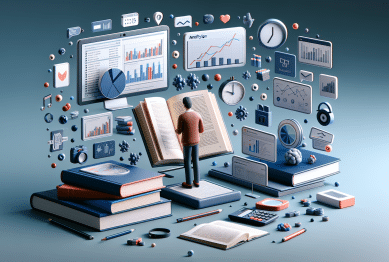In an era where productivity is often equated with constant motion, the concept of pausing to reflect can seem counterintuitive. Yet, the power of reflection in enhancing your work is gaining momentum as a critical strategy for sustainable success. Reflection isn’t just about looking back; it’s about making sense of experiences, identifying lessons, and applying those insights to improve future performance.
Recent research indicates that reflection can boost learning, creativity, and decision-making capabilities. In professional settings, reflection helps individuals and teams to fine-tune strategies, avoid repeating mistakes, and foster continuous improvement.

Why Reflection Matters More Than Ever
The modern work environment is saturated with distractions, quick fixes, and a relentless push for immediate results. However, this rapid pace often leads to shallow work, where quantity overtakes quality. Reflection acts as a buffer against this trend, encouraging deliberate thinking and meaningful progress.
A Harvard Business School study found that employees who spent 15 minutes at the end of the day reflecting on lessons learned performed 23% better after 10 days compared to those who did not reflect. This indicates that time invested in reflection pays off in enhanced work quality and efficiency.
The Rise of “Slow Productivity”
A growing trend aligned with reflection is “slow productivity,” popularized by productivity experts like Cal Newport. This movement emphasizes doing fewer things but with greater focus and depth. Reflection is central to this approach, as it helps identify which tasks are truly meaningful and which are noise.
How Reflection Enhances Your Work Quality
1. Deepens Learning and Retention
When we reflect on experiences, we shift from passive consumption to active processing. This deepens learning and makes new knowledge more applicable. Reflection strengthens neural pathways associated with understanding and recall, making it easier to apply lessons in future scenarios.
2. Improves Decision-Making
Reflection provides a structured pause to evaluate past choices and their outcomes. By analyzing what worked and what didn’t, professionals can refine their decision-making processes. This reflective analysis reduces impulsive actions and fosters strategic thinking.
3. Cultivates Creativity
Innovative ideas often emerge during moments of pause. Reflection allows the subconscious mind to connect disparate thoughts, leading to creative breakthroughs. Companies that encourage reflective practices report higher rates of innovation and employee engagement.
4. Reduces Burnout
Constantly pushing forward without reflection leads to cognitive overload and emotional exhaustion. Incorporating reflection into daily routines can help individuals process stress, recognize achievements, and maintain mental well-being.
Practical Daily Rituals to Build a Reflection Habit
Building reflection into your work doesn’t require grand gestures. Small, consistent rituals can make a significant impact. Here are practical ways to integrate reflection into your daily workflow:
1. The 5-Minute End-of-Day Recap
At the end of each workday, take five minutes to jot down:
- What went well today?
- What could I have done differently?
- What is one lesson I learned?
2. Morning Intentions and Evening Reviews
Begin your day by setting a clear intention. At day’s end, review whether you stayed aligned with that intention. This simple bookend strategy keeps you grounded and focused.
3. Weekly Reflection Sessions
Reserve 20-30 minutes once a week to review your week holistically:
- Which tasks were meaningful?
- What patterns of distraction emerged?
- How did you handle challenges?
4. Reflective Journaling Apps
Digital tools like Day One, Reflectly, or even Notion offer structured templates for reflection. These platforms make it easy to track progress and revisit past insights.
The Role of Reflection in Remote and Hybrid Work
With remote and hybrid work models becoming the norm, self-regulation and introspection are more important than ever. In the absence of constant managerial oversight, employees need to self-reflect to maintain performance and growth.
Organizations like GitLab have integrated reflection into their asynchronous workflows, encouraging employees to conduct “retrospectives” after major projects. This builds a culture where learning from experience is not an afterthought but a structured practice.
Overcoming Barriers to Reflection
Despite its benefits, reflection often gets sidelined. Common barriers include:
- Perceived Lack of Time: The belief that there’s no time to pause. However, as shown in the Harvard study, even 15 minutes can yield tangible benefits.
- Productivity Guilt: The misconception that reflection is a form of procrastination. In reality, it is a high-leverage activity that multiplies future productivity.
- Lack of Structure: Unstructured reflection can feel aimless. Having a set of guiding questions or prompts can provide direction and make reflection more impactful.
Future Trends: AI-Assisted Reflection
An emerging trend is the use of AI tools to facilitate reflection. Apps like Replika and Lifelogging tools are being designed to prompt reflective questions based on daily activities. These tools analyze patterns in your work and suggest insights, making reflection more data-driven and personalized.
For example, Microsoft’s Viva Insights tool offers reflective prompts to employees based on their work patterns, helping them understand how their habits affect productivity and well-being.
Conclusion
The power of reflection in enhancing your work is not just a personal development tool—it’s becoming a professional necessity. In a landscape where adaptability and thoughtful execution are key, those who reflect gain a distinct edge. Reflection transforms experiences into actionable insights, fuels creativity, and sustains mental clarity.
Incorporating small, consistent reflection rituals can yield exponential benefits over time. As technology evolves, blending human introspection with AI-assisted prompts will likely redefine how professionals engage with their work. The question is not whether you have time to reflect, but whether you can afford not to.
References
- Harvard Business Review. “Reflecting on Work Improves Job Performance.” https://hbr.org/2014/10/reflecting-on-work-improves-job-performance
- Cal Newport. “The Case for Slow Productivity.” https://www.calnewport.com/blog/2021/02/16/the-case-for-slow-productivity/
- GitLab. “How We Run Async Retrospectives.” https://about.gitlab.com/handbook/engineering/quality/async-retrospectives/
- Microsoft Viva Insights. “Empowering Employee Wellbeing.” https://www.microsoft.com/en-us/microsoft-viva/insights










 Creating a Healthy Work-Life Balance with Small Changes
Creating a Healthy Work-Life Balance with Small Changes 

